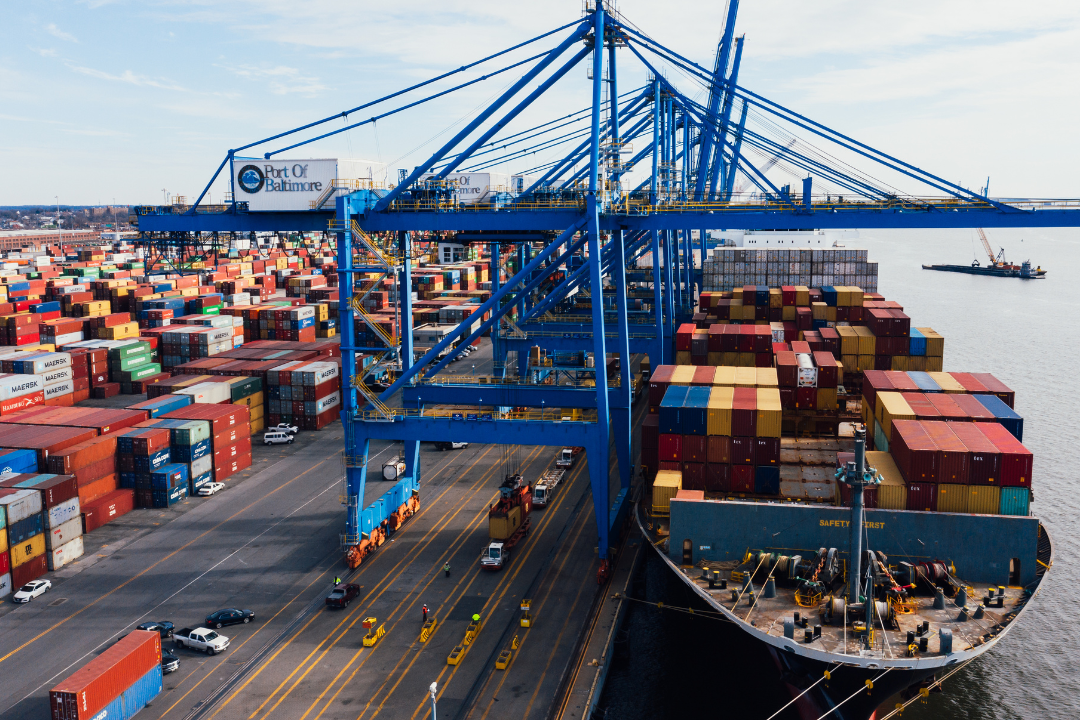Over the past several years, we have seen a more urgent need for liquidity management amid ongoing supply chain woes. Implementing an effective working capital strategy is critical for businesses seeking to navigate the complexities of turbulent supply chains in an erratic market.
In this blog, we’ll look more closely at ongoing supply chain obstacles and how a Supply Chain Finance (SCF) program can help mitigate your risks.
Key challenges facing global supply chains
As businesses rely more on interconnected systems to source materials, manufacture products, and deliver goods, supply chains are increasingly vulnerable to a wide range of operational hiccups, including labor strikes, extreme weather events, geopolitical instability, and cyberattacks.
Port strikes and labor shortages
Port strikes can have devastating consequences for supply chains, causing delays that ripple across industries. They have historically led to prolonged logistics bottlenecks, affecting everything from manufacturing to retail.
For example, a Vancouver port workers’ strike during Canada’s important grain harvest season illustrated that these predicaments could occur at any time and drastically alter supply chain dynamics. This port facilitated the transportation and distribution of over 50% of the country’s grain, meaning the strike had a potential loss of $26 million every day.
Even the threat of a strike can cause panic throughout the supply chain. The reported reaction of shippers and carriers ahead of a potential strike showed how unprepared most were to navigate a significant supply chain threat.
With U.S. business logistics costs reaching record highs — up 19.6% year over year — a lot of companies are feeling financial strain, underscoring the importance of a well-structured working capital strategy to maintain liquidity and operational efficiency.
Extreme weather and natural disasters
While some supply chain delays can be avoided — such as with a last-minute negotiation ahead of a strike — weather cannot. Extreme weather is considered to be one of the more pressing supply chain concerns. It’s estimated that production and distribution challenges due to recent extreme weather resulted in about a $100 billion loss for companies around the world.
There are a variety of weather events that can derail transportation and logistics. As seen with the Panama Canal, droughts can result in major headaches for freight companies. Given that the canal facilitates 5% of seaborne trade worldwide, its slowing ability to transport ships will continue to have significant repercussions.
The reduction in water levels means that not only can fewer ships pass, but it increases the likelihood of additional regulations to limit the amount of weight a passing ship may carry. Additionally, the process of booking and paying for passage through the canal has become more complicated and expensive.
While some companies transporting finished consumer goods reserve passage in advance, bulk shipping companies are generally less likely to do so. That presents a costly decision for bulk shippers that requires them to have working capital on hand.
Some companies must pay extra to move ahead in line or take a longer route to adjust for the increasing limitations. Either way, having access to the working capital needed to make that decision is essential.
As another example, logistics companies can pull shipments forward in their schedule ahead of an impending weather event, such as a hurricane, for a premium. This requires the purchasing company to have greater access to working capital, which can be more easily accessed through embedded finance solutions from Raistone.
Geopolitical turmoil, cyberattacks, and unexpected tragedies
Trade wars, changing regulations, cyberattacks, and tragic events have also proven to be concerns for many companies.
Ongoing trade tensions have impacted the supply chains of various industries, such as technology and manufacturing. As a result, many companies must diversify their sources and access to working capital to navigate the impact of tariffs and other trade-related worries.
Attacks on cargo vessels also pose a risk, as seen in the Red Sea. These incidents often force transportation and logistics companies to reroute their cargo. As a result, there could be increased costs that companies must be prepared for.
While some companies are managing to adapt, the repercussions on maritime shipping pose risks to international food security and economic stability. This showcases the critical need for carriers to have resilient Supply Chain Finance strategies to navigate such challenges effectively.
In an increasingly interconnected system of commerce, supply chains heavily rely on digital systems for everything from inventory management and order fulfillment to communication and transportation logistics. As a result, technological failures — such as cyberattacks or system malfunctions — pose significant risks to these operations.
We’ve seen plenty of instances of cyberattacks in recent years, such as the Okta hack that put other companies, including Cloudfare and 1Password, at risk.
Sadly, geopolitical turmoil and cyberattacks are not the only disasters that can strike. Other catastrophic accidents, such as infrastructure damage in the form of a bridge collapse, can occur. Another example of an unfortunate and unexpected delay, and the most significant in recent history, would be the COVID-19 pandemic. Unsurprisingly, following an unprecedented worldwide event with unheard-of consequences for the global supply chain, there was a shift in the collective mindset around preparedness.
Supply chain resiliency
Whether a company is faced with issues at the local level, such as a regional supplier going out of business, or on a larger systemic level, as with a pandemic, having a resilient supply chain is key. That requires having the necessary working capital on hand to adapt.
The ability to control when you’re paid can help account for delays or interruptions, which would have otherwise resulted in continued delays in receiving payment. Having the flexibility to adapt to changing circumstances can help companies survive complex markets, making preparedness a competitive advantage.
For example, a company in the U.S. sourcing primarily from a Chinese supplier would have experienced significant delays during the height of the COVID-19 pandemic. In this situation, they would likely need to find other suppliers to fill their orders. If they did, a new supplier may not have been comfortable with the payment terms that they had with the first supplier. Giving them an early payment option eases those tensions.
Industries most impacted by supply chain delays
Across industries, supply chain troubles cause delays, cost increases, and revenue loss, underscoring the need for resilience in sourcing, inventory, and logistics.
In the automotive industry, delays in parts or raw materials will halt production. Shortages in semiconductors, metals, and plastics have led to significant stoppages, inflating costs and delaying vehicle availability.
In retail, breaks in the supply chain result in stock shortages, lost sales, and forced higher inventory levels to buffer against delays, tying up cash that could otherwise fuel growth.
For the construction sector, delays in materials like lumber, steel, and cement slow down projects, increasing costs and extending timelines. Price hikes and transportation jams can further strain budgets.
The food and beverage industry faces product shortages and price increases due to problems in ingredient and packaging supply chains, often triggered by weather events or labor shortages. Finally, the aviation industry relies on specialized components, and delays in part deliveries can halt production or maintenance, causing significant financial losses and operational hassles.
Building a proactive embedded finance framework for the future
Whether it’s through increased operational costs, delayed revenue, or cash flow strain, the financial repercussions of supply chain disruptions are often far-reaching and can affect everything from daily operations to long-term profitability.
As operational nuisances will inevitably continue, a solid working capital strategy is crucial. By prioritizing liquidity and flexibility in financial planning, companies can better navigate the turbulent waters of international logistics, ensuring liquidity, managing risks, and supporting buyers and suppliers alike.
How Supply Chain Finance helps to navigate ongoing disruptions
SCF offers a way to enhance liquidity, strengthen supplier relationships, and ensure smooth operations. Businesses can improve their working capital by allowing suppliers to receive early payments on their invoices, while buyers benefit from extended payment terms. This win-win scenario enhances financial health for both parties and promotes collaboration across the supply chain.
Additionally, by leveraging SCF, businesses can operate more efficiently and respond quickly to market demands. This competitive edge is crucial for thriving in a challenging environment. Implementing an SCF program with Raistone sets your company up for success. When you have the system in place, it’s simple and easy to increase the program as you or your suppliers need to. Our team of financial experts is ready to assist and help you identify the right solution for your business needs.

About the Author
Juan Segundo, Sales Director at Raistone, leads the Supply Chain Finance team and has over 15 years of experience in the finance industry, at prestigious institutions such as Citibank and Mizuho Bank. Juan is passionate about helping corporate clients optimize their cash flow through tailored payables solutions. His approach emphasizes building personal relationships, allowing him to create specialized programs that meet the unique needs of the businesses he works with.
Related Topics
Insights, Supply Chain Finance, Blogs



